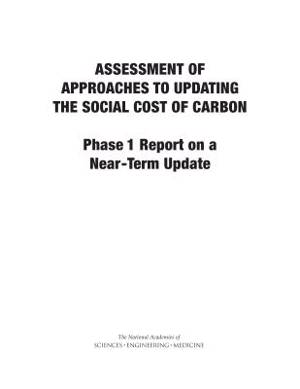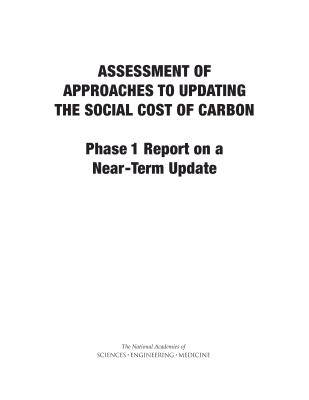
- Retrait gratuit dans votre magasin Club
- 7.000.000 titres dans notre catalogue
- Payer en toute sécurité
- Toujours un magasin près de chez vous
- Retrait gratuit dans votre magasin Club
- 7.000.0000 titres dans notre catalogue
- Payer en toute sécurité
- Toujours un magasin près de chez vous
Assessment of Approaches to Updating the Social Cost of Carbon
Phase 1 Report on a Near-Term Update
National Academies of Sciences Engineering and Medicine, Division of Behavioral and Social Sciences and Education, Board on Environmental Change and Society, Committee on Assessing Approaches to Updating the Social Cost ofDescription
The social cost of carbon (SCC) for a given year is an estimate, in dollars, of the present discounted value of the damage caused by a 1-metric ton increase in CO2 emissions into the atmosphere in that year; or equivalently, the benefits of reducing CO2 emissions by the same amount in that given year. The SCC is intended to provide a comprehensive measure of the monetized value of the net damages from global climate change from an additional unit of CO2, including, but not limited to, changes in net agricultural productivity, energy use, human health effects, and property damages from increased flood risk. Federal agencies use the SCC to value the CO2 emissions impacts of various policies including emission and fuel economy standards for vehicles, regulations of industrial air pollutants from industrial manufacturing, emission standards for power plants and solid waste incineration, and appliance energy efficiency standards.
There are significant challenges to estimating a dollar value that reflects all the physical, human, ecological, and economic impacts of climate change. Recognizing that the models and scientific data underlying the SCC estimates evolve and improve over time, the federal government made a commitment to provide regular updates to the estimates. To assist with future revisions of the SCC, the Interagency Working Group on the Social Cost of Carbon (IWG) requested the National Academies of Sciences, Engineering, and Medicine complete a study that assessed the merits and challenges of a limited near-term update to the SCC and of a comprehensive update of the SCC to ensure that the estimates reflect the best available science. This interim report focuses on near-term updates to the SCC estimates.
Spécifications
Parties prenantes
- Auteur(s) :
- Editeur:
Contenu
- Nombre de pages :
- 72
- Langue:
- Anglais
Caractéristiques
- EAN:
- 9780309391450
- Date de parution :
- 26-03-16
- Format:
- Livre broché
- Format numérique:
- Trade paperback (VS)
- Dimensions :
- 211 mm x 274 mm
- Poids :
- 240 g

Les avis
Nous publions uniquement les avis qui respectent les conditions requises. Consultez nos conditions pour les avis.






